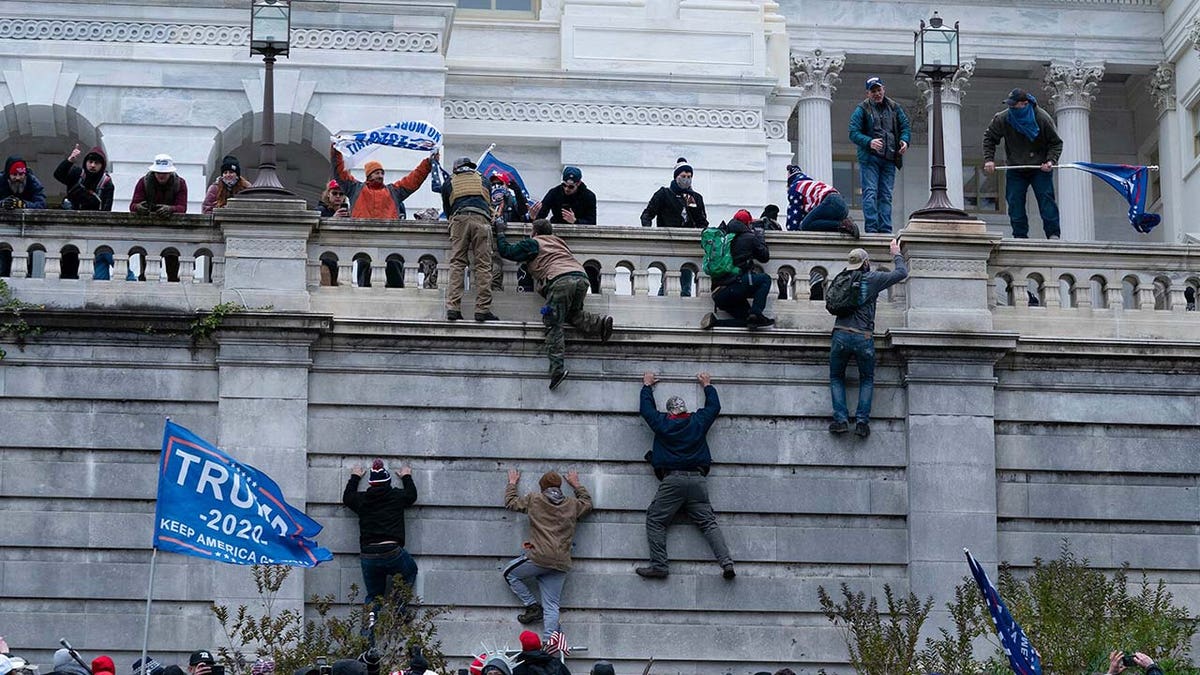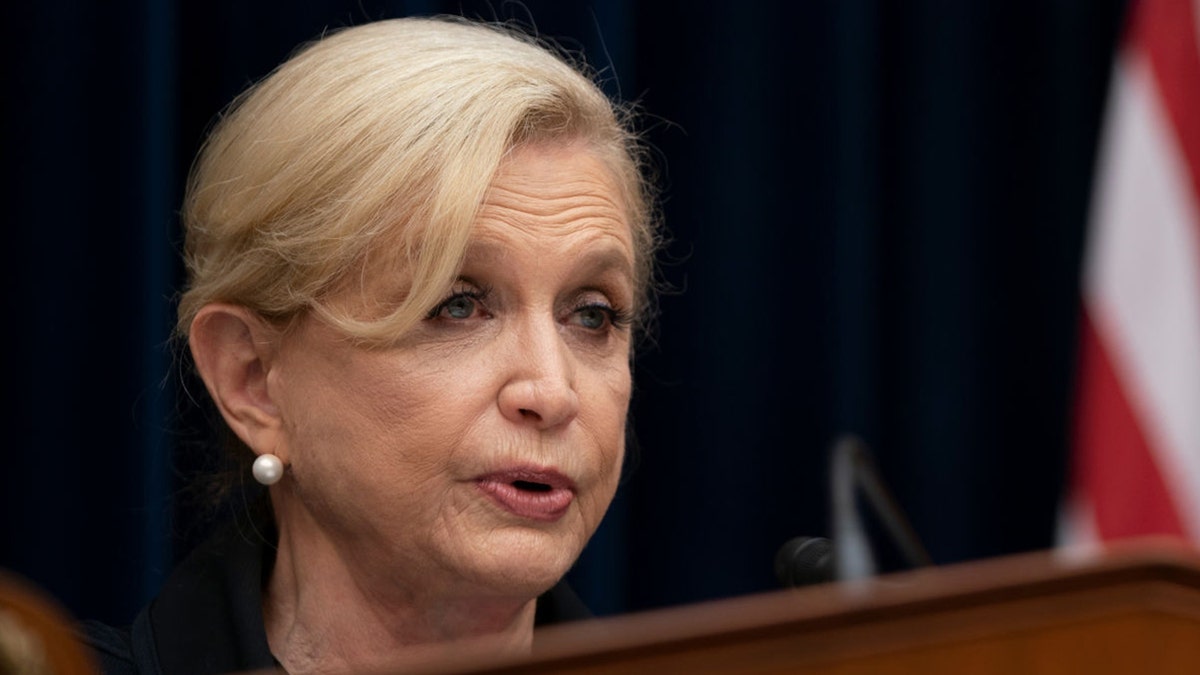Fox News Flash top headlines for March 26
Fox News Flash top headlines are here. Check out what's clicking on Foxnews.com.
The Democrats who lead several key House committees sent document requests Thursday night to 16 different government entities seeking information about the Jan. 6 attack on the Capitol by a pro-Trump mob.
The requests are going to several executive branch agencies, including the Department of Justice, FBI, Department of Homeland Security and the White House. They are also being sent to Washington, D.C., Mayor Muriel Bowser and the Metropolitan Police Department, as well as legislative entities like the Architect of the Capitol and the sergeants at arms for the House and the Senate.
The nine Democratic committee chairs are seeking information from these agencies, including communications with the White House, threat assessments, communications with participants in the attack and offers for security assistance.
"The Chairs requested documents and communications from three key time periods—before, during, and after the attack—which relate to the counting of the Electoral College vote, or the potential for demonstrations, violence, or attacks in the National Capital Region on or around January 6, 2021," a release publicizing the letters said.
Investigations into the Jan. 6 attack have been highly politicized thus far.
House Speaker Nancy Pelosi, D-Calif., selected retired Lt. Gen. Russel Honoré to lead an initial probe into security failures surrounding the attack. But comments he made lambasting congressional Republicans and Trump supporters have led Republicans to say they will essentially disregard any of his findings.
Meanwhile, negotiations between congressional leaders have stalled after Pelosi's proposal for a commission to investigate the Jan. 6 attack would have included seven commissioners appointed by Democrats and four chosen by Republicans.
"An inquiry with a hard-wired partisan slant would never be legitimate in the eyes of the American people," Senate Majority Leader Mitch McConnell, R-Ky., said on the Senate floor last month. "An undertaking that is uneven or unjust would not help our country."
But Congress has broad oversight authority and Democrat House committee chairs can launch their own investigations into the events surrounding Jan. 6 without any sign-off from Republicans.

Supporters of President Trump climb the west wall of the U.S. Capitol on Wednesday, Jan. 6, 2021, in Washington. (AP Photo/Jose Luis Magana)
The Democrat committee chairs who signed onto the document requests are Reps. Carolyn Maloney, D-N.Y.; Adam Smith, D-Wash.; Zoe Lofgren, D-Calif.; Bennie Thompson, D-Miss.; Adam Schiff, D-Calif.; Jerrold Nadler, D-N.Y.; Betty McCollum, D-Minn.; Chellie Pingree, D-Maine, and Tim Ryan, D-Ohio.
The document requests do not have the force of law, but they could be followed up with subpoenas if the committees are not happy with the responses from any individual entity.
The Biden White House and other executive agencies may end up denying some of these documents requests on executive privilege, lest they set a precedent that Republicans could use against them if the GOP takes over the House or Senate in 2022.
Claims of executive privilege from the Trump administration tipped off protracted legal battles. One of the most high-profile of those, in which the House sought to force testimony from former White House Counsel Don McGahn, is still going on.
Biden's administration has already shown that it is willing to go to bat for former Trump officials for the sake of protecting the executive branch. Earlier this year, Biden's Justice Department backed former Education Secretary Betsy DeVos' efforts to avoid a deposition in a lawsuit against her related to her decisionmaking on for-profit colleges.

Chairwoman Carolyn Maloney, D-N.Y. delivers her opening statement at a hearing of the House Oversight and Reform Committee on Sept. 30, 2020, in Washington, D.C. She is leading an effort to get documents related to the Jan. 6 Capitol attack from executive, legislative and Washington, D.C., governmental entities. (Alex Edelman-Pool/Getty Images) (Getty Images)
"Subjecting high-level government officials to depositions in civil actions involving their agency would impede the exercise of official duties by exerting a chilling effect on official decision-making," Biden's Department of Justice and DeVos' lawyers wrote in a joint filing.
The filing continued to say that a deposition of DeVos would implicate "serious concerns" of "separation of powers, preventing harm to agency decisionmaking, and preventing harassment and the deleterious effect harassment would have on public service—underlying the rule against depositions of current and former Cabinet officials."
The Jan. 6 Capitol attack followed a rally held the same day by former President Trump in which he repeated false claims that he had won the presidential election. His speech happened shortly before Congress was set to meet in a joint session to certify the results of the election.
CLICK HERE TO GET THE FOX NEWS APP
Trump encouraged his followers during that speech to protest "peacefully and patriotically." But critics have said that one off-hand comment does not outweigh the balance of his rhetoric in the lengthy Jan. 6 speech or in the preceding weeks, in which he said the rally would be "wild."
Rioters had been around the Capitol for most of the day on Jan. 6, but they finally breached the building as their numbers grew about an hour after Trump's speech concluded.
Trump was impeached by the House of Representatives for allegedly inciting an insurrection. The Senate later failed to convict him on that charge.






